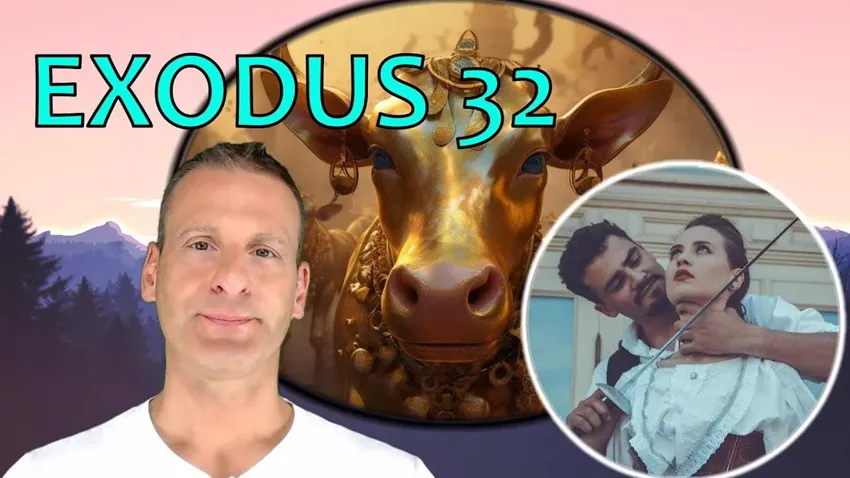Exodus Chapter 32 Summary
Exodus 32 details a pivotal moment in Israel’s journey through the wilderness. As Moses delays returning from Mount Sinai, the Israelites, growing impatient, pressure Aaron to make them a golden calf to worship. This act of idolatry directly violates God‘s commandments. When Moses descends and sees the people’s sin, he becomes furious, destroying the calf and calling for repentance. Moses intercedes on behalf of the people, pleading for God’s mercy. The chapter ends with a severe consequence: about 3,000 people die for their rebellion, and God sends a plague as further punishment. This chapter underscores the dangers of turning away from God and the need for repentance.
Bible Exodus Chapter 32
Welcome to read Exodus Chapter 32. Here is the list of Exodus Chapter 32:
What Does Exodus Chapter 32 Teach Us?
Exodus 32 narrates the story of Israel’s sin with the golden calf, a moment that reveals both the frailty of human nature and God’s righteousness. This chapter teaches several valuable lessons for today’s believers:
1. The Dangers of Spiritual Complacency
Exodus 32 begins with the people of Israel growing impatient as Moses delays on the mountain. In their waiting, they choose to act on their own by creating an idol, the golden calf. This shows how quickly people can stray from faith when they become spiritually complacent or impatient. It serves as a reminder to stay vigilant in our trust and reliance on God, especially in times of waiting.
2. The Consequences of Idolatry
The people of Israel, despite experiencing God’s deliverance, reverted to idolatry by crafting a golden calf to worship. This act of turning to false gods highlights the dangers of idolatry, not only in a literal sense but also in any form of misplaced devotion—be it money, fame, or power. Exodus 32 teaches that idolatry disrupts our relationship with the true God and leads to spiritual and moral decay.
3. God’s Righteous Anger
In this chapter, God expresses His anger toward the people, and Moses intercedes on their behalf. God’s wrath is a direct response to their unfaithfulness, but His anger is also tempered by His mercy. God’s justice and holiness require a response to sin, but His love is evident in the way He provides a means of forgiveness and restoration. This teaches us the balance of God’s nature—righteous anger and compassionate mercy.
4. The Power of Intercession
Moses serves as an intercessor for the Israelites, pleading with God to spare them from destruction. His role underscores the power of intercessory prayer and the importance of standing in the gap for others. Even when faced with consequences for sin, intercession can lead to mercy and grace.
5. Repentance and Restoration
In the latter part of the chapter, the Levites are called to act in judgment, and those who repent are spared. This highlights that while sin has consequences, repentance opens the door for restoration. God is always willing to forgive those who genuinely turn back to Him, no matter how far they’ve strayed.
Related topics:

